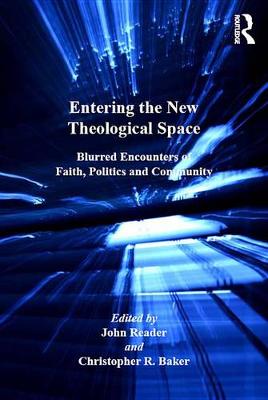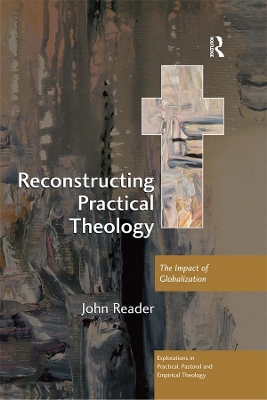Explorations in Practical, Pastoral and Empirical Theology
2 total works
This book presents theological reflections on the changing nature of church mission and Christian identity within a theology of 'blurred encounter' - a physical, social, political and spiritual space where once solid hierarchies and patterns are giving way to more fluid and in many ways unsettling exchanges. The issues raised and dynamics explored apply to all socially-produced space, thus tending to 'blur' that most fundamental of theological categories - namely urban vs. rural theology. Engaging in a sharper way with some of the helpful but inevitably broad-brush conclusions raised by recent church-based reports (Mission-shaped Church, Faithful Cities), the authors examine some of the practical and theological implications of this research for the issue of effective management and therefore church leadership generally. Speaking to practitioners in the field of practical theology as well as those engaged in theological and ministerial training, key voices encompass dimensions of power and conflict, and identify some of the present and future opportunities and challenges to church/faith-based engagement and leadership arising from blurred encounters. Contributors - practitioners and theorists - cover a wide spectrum of interdisciplinary professional contexts and academic/denominational interests. Contributors include: John Atherton, John Reader, Helen Cameron, Martyn Percy, Malcolm Brown, Karen Lord, Clare McBeath and Margaret Goodall.
This book argues that the discipline of practical theology needs to be re-shaped in the light of the impact of various influences created through the encounter with globalization. Essential to this is an engagement with the insights of other disciplines, e.g. sociology, politics, economics and philosophy. The content and authority of the Christian tradition is being challenged by the blurred encounters with more fluid lifestyles, alternative spiritualities and indeed other faiths as mediated through information technology and the breakdown of attachments to all forms of institutional life. Traditional ways of 'belonging' and relating to places and structures are being eroded leaving the established patterns of ministry, worship, church organisation the province of an ageing population, while those who are now more inclined to search for 'communities of interest' avoid being drawn into the practices and structures of formal religion. What is the future for practical theology in this rapidly changing context? By examining the familiar concerns of the subject John Reader shows how it is in danger of operating with 'zombie categories' - still alive but only just - and presents the possibilities for a reflexive spirituality grounded in the Christian tradition as a way into the future.

